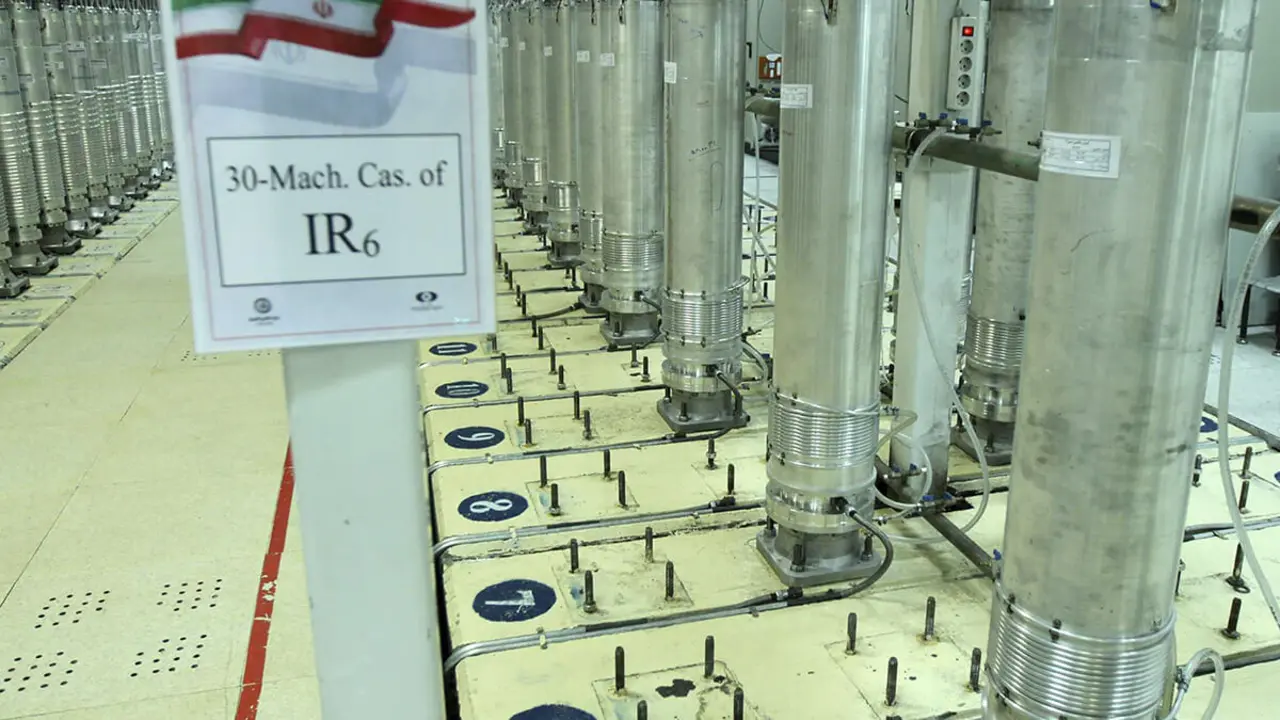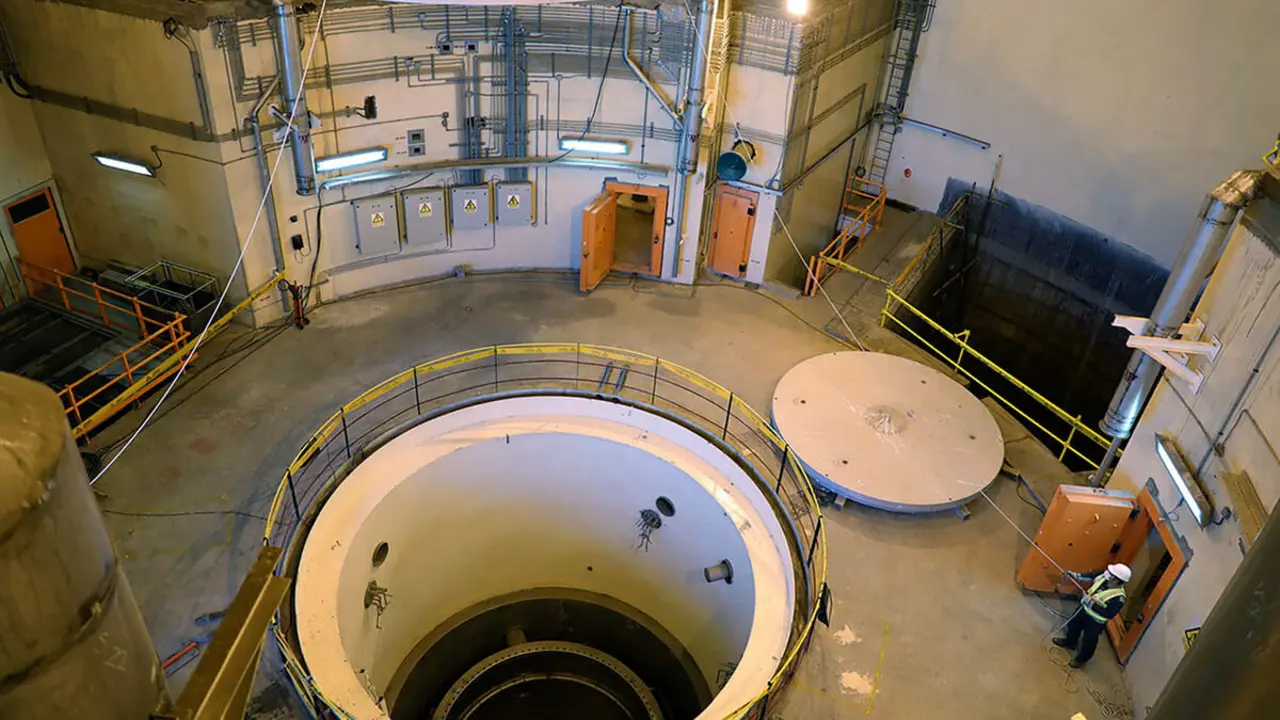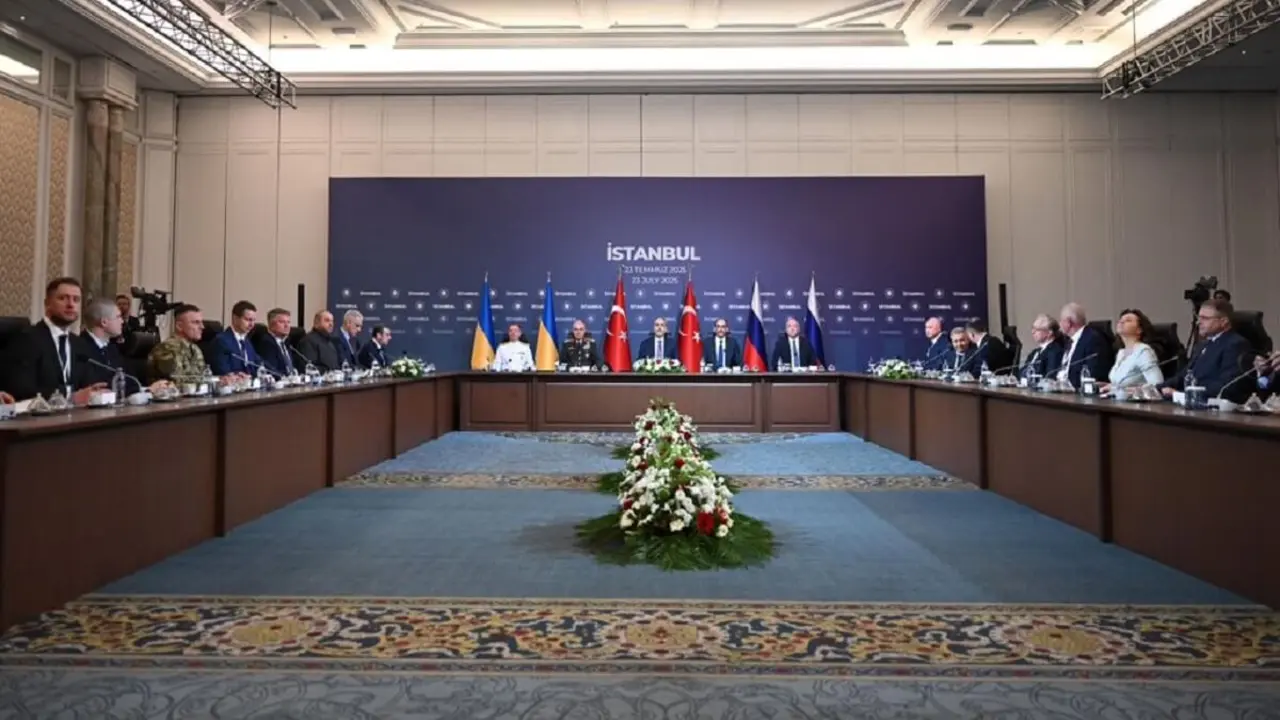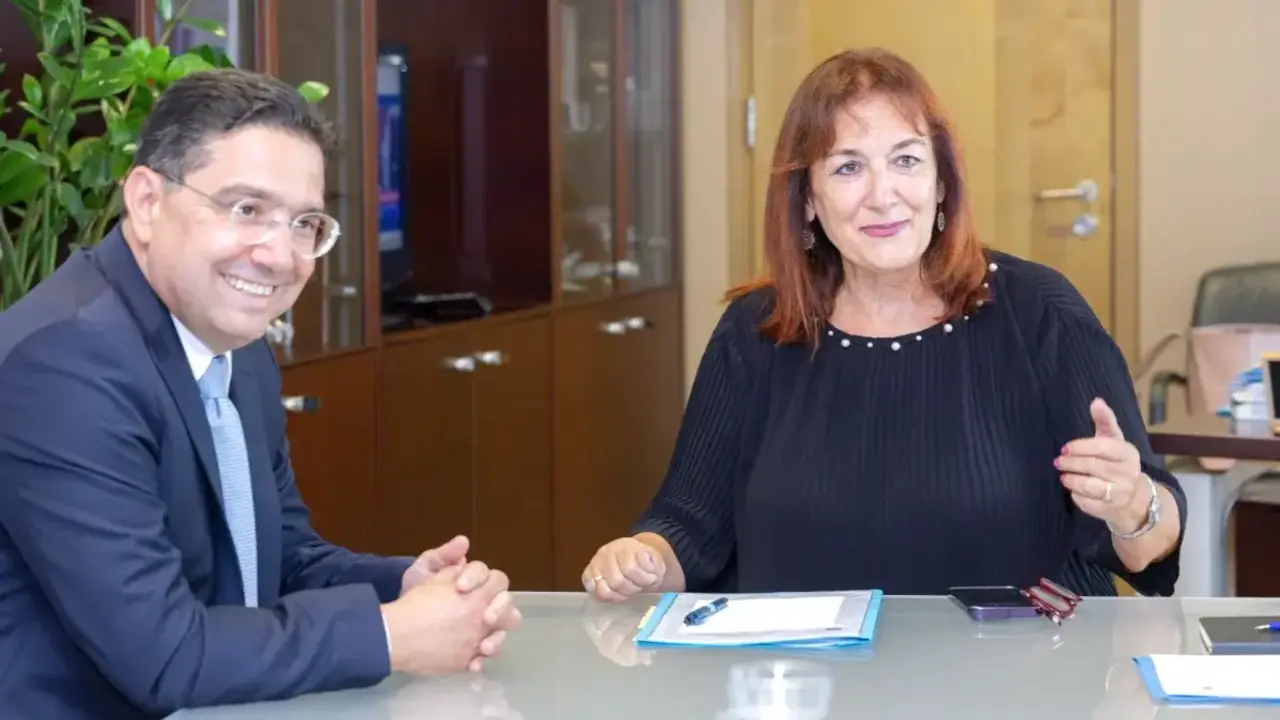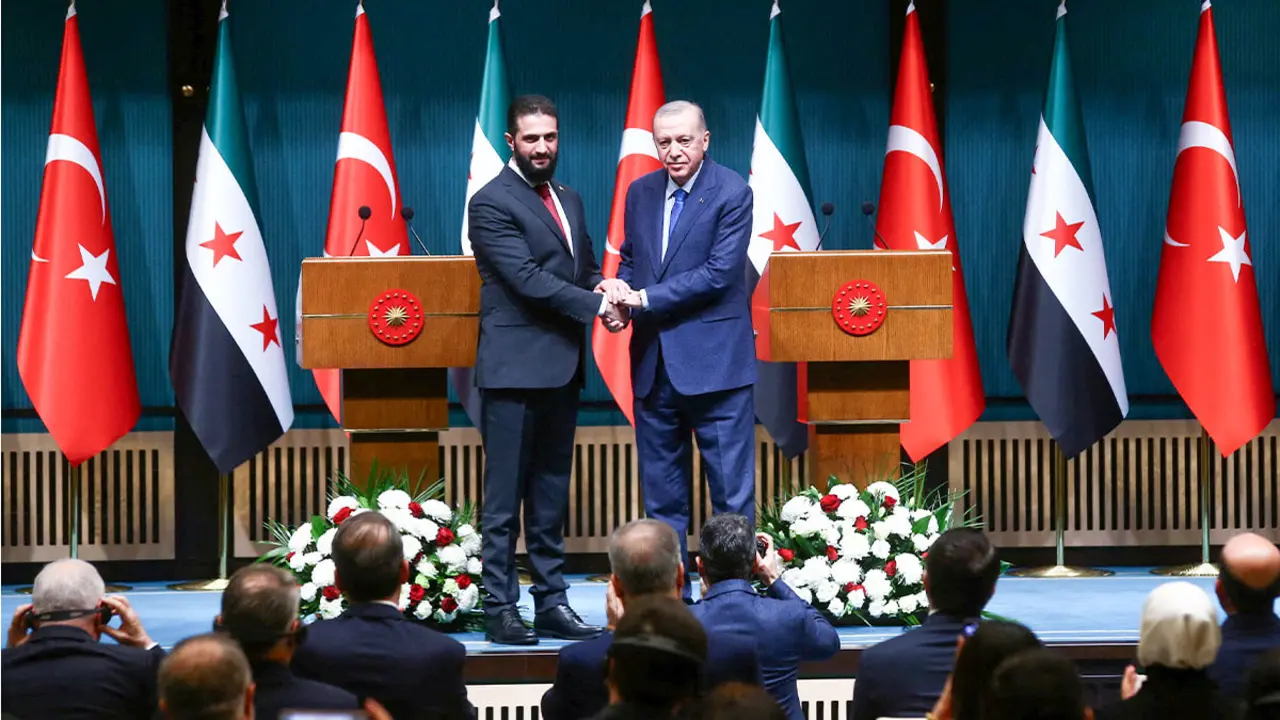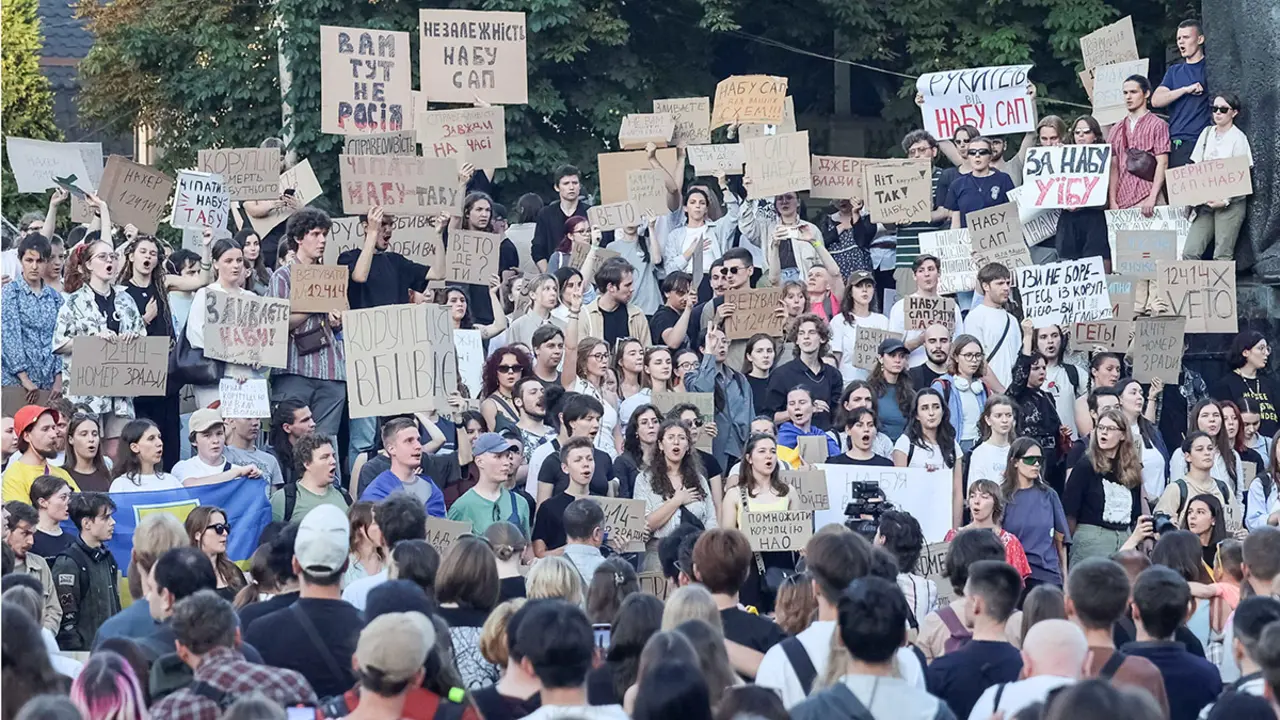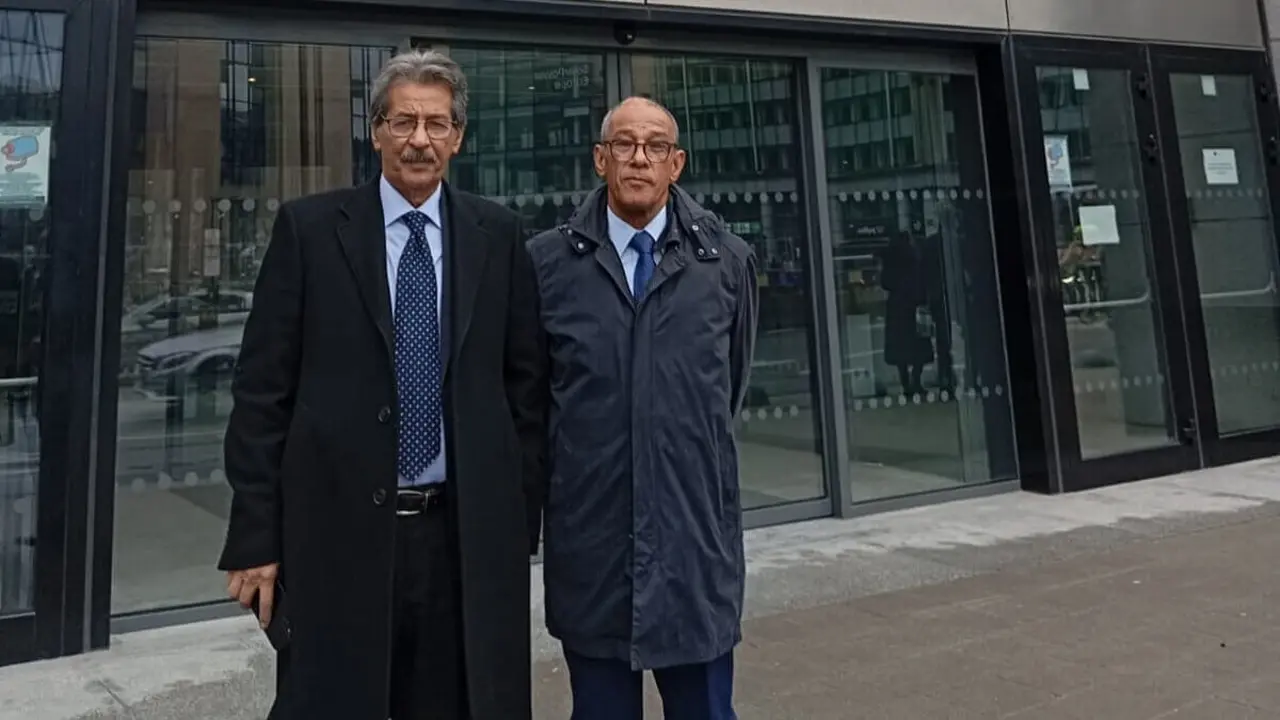Salam Kawakibi on the Syrian war: "This is the biggest humanitarian catastrophe in centuries"
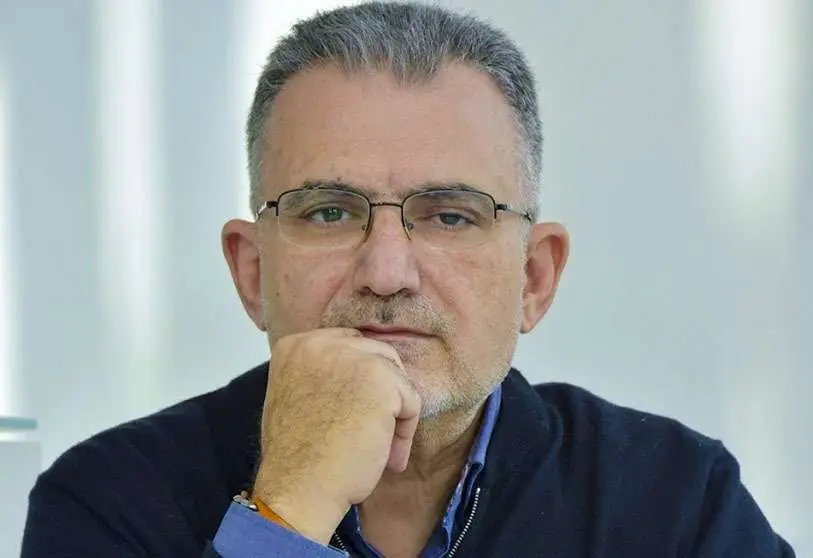
A decade has passed since the outbreak of the Syrian war, and the situation is still far from being resolved. The economic situation, but above all the humanitarian situation, is at a catastrophic point. Since the beginning of the conflict, the Syrian currency has devalued by 99%, and already, far from dying because of the war itself, the Syrian population is starving to death due to the scarcity of resources. One of the root causes that has brought the war to this point is the manipulation of the Islamist message by the most radical sectors, according to Salam Kawakibi, director of the Arab Centre for Research and Policy Studies in Paris (CAREP). "Ten years after the outbreak of the conflict, the Syrian people do not see the light at the end of the tunnel". With these words, Salam Kawakibi emphasises in this interview the imbalance of the conflict and the fundamental role that foreign interference has played - and will continue to play.
What is the role of the Arab Centre for Research and Policy Studies in Paris (CAREP)?
The centre is a very new one. We have been in Paris for two years. We are a French non-profit association, but we also have the Arab Centre for Research and Policy Studies in Doha, chaired by the Palestinian Arab intellectual Azmi Bishara, as our main partner and academic and material support. The Doha Centre has branches in Washington, Beirut, Tunis, Amman and soon in Madrid.
Our main vocation in Paris is to try to bring together social science research from both sides of the Mediterranean and to strengthen the mutual recognition of knowledge. Researchers from both shores of the Mediterranean develop scientific and intellectual relations between Europe and Arab countries.
Thus, the Centre aims to develop research in the social sciences and humanities; European researchers on the Arab world and Arab researchers on Europe.
The aim is to bridge the huge gap between the Mediterranean and European research communities. Our aim is to encourage the development of scientific and intellectual partnerships, to develop dialogue on contentious issues, especially those related to integration, migration, terrorism and religion. Because now, considering the situation in Europe, Islam is very badly perceived. In fact, there is a lot of confusion between religious and political affiliations.
There are two principles that are very dear to us: the democratisation of all Arab countries and the right of peoples to self-determination, especially the Palestinian people. These are two values to which we are very attached. Thus, we try to promote the culture of democracy and the culture of human rights through our work.

How can centres like the one you run help in the Syrian conflict?
We are developing research programmes on democratic transitions around the world. In this framework, we study experiences that can be useful for Arabs. Democratisation in Spain and Portugal represent research cases for us. This research can be extended to Central and Eastern Europe to understand how these countries have managed to emerge peacefully from dictatorship and develop a democratic system despite all its shortcomings. From these comparative studies, we try to see how they can help mainly Syrians, but also other Arabs, other countries that are going through the same ordeal, i.e. democratic transition.
We also aim to bring points of view closer together. Of course, we do not intend to put the executioner and the victim on the table so that they can reconcile. The executioner is an executioner. He must pay for his crimes in a court of law. However, since there are many divisions in viewpoints, ideologies between the Islamists on the one hand, the liberals on the other, the left and moderate Islam, we are still trying to organise dialogues between these political actors who have in common the will to establish a democratic system in this region.
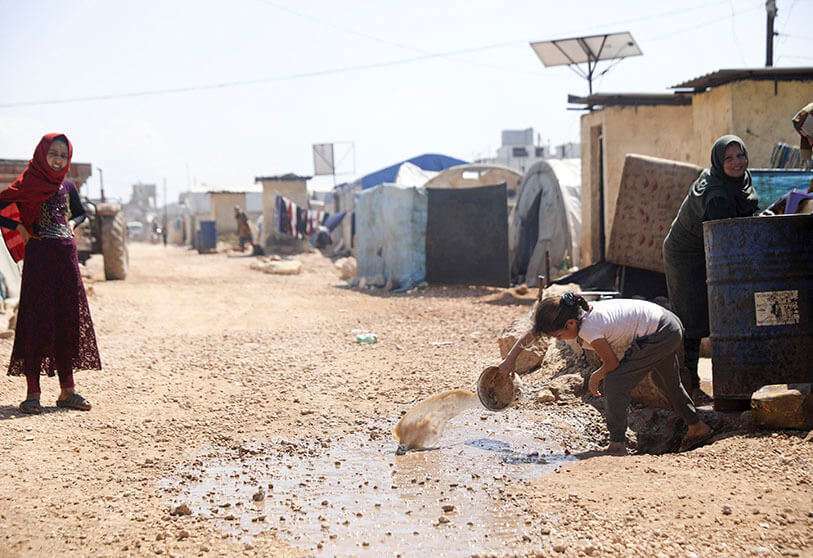
10 years after the start of the Syrian conflict, where do you think the conflict is now?
The situation is deadlocked. There is no war and there is no peace. It's a very strange situation. People are dying every day from starvation, disease, bombings and sporadic attacks. There is no security. There is also the question of the demographic reshaping of the country. There are more than 12 million displaced Syrians, 7 million outside Syria and the rest inside the country. They live in a catastrophic humanitarian situation that is not due to international sanctions, but mainly to the endemic corruption of the political system.
It is also due to the regime clan's control of all food imports and oil revenues. The Syrian pound has lost 98% of its value. In Syria, more than 80% of the population lives below the poverty line. People are now selling their children in the public market in order to feed the rest of the family. In this catastrophic situation, the regional and international force finds no urgency to find a solution to this human catastrophe.
It is important to know that Syria is a three-hour flight from Madrid, Paris and Rome. We are on Europe's doorstep. Europe already suffered a wave of refugees from Syria in 2015. Currently, there are 4 million refugees in northern Syrian camps who represent a possible new wave coming soon.
They may be candidates to come to Europe if they do not find a decent and dignified life to return home. What is very dangerous is that Bashar al-Assad has officially declared that with the departure of these millions of Syrians, Syrian society has become homogeneous. It is a phrase that reminds us of Adolf Hitler's speech in 1933, when he spoke of the homogeneity of German society after cleansing it of all foreign elements. Today, in the 21st century, we speak of a homogeneous society because it has been deprived of half of its members. Refugees in Europe are hardly allowed to return. Everything is done to prevent them from returning, as they are considered opponents or relatives of opponents, so the regime does not want them to return. To reinforce this radical separation, they will be banned from voting while abroad. Even if elections in Syria since 1963 are only plebiscite events for one candidate or one party.
The presidential election results in Assad's Syria reach 99%. At the same time it is underlined that voters are massively angering ballot boxes that can be filled with ballots bearing the names of the dead. The situation is truly catastrophic at all levels, in particular with the absence of an international will to put an end to this disaster.
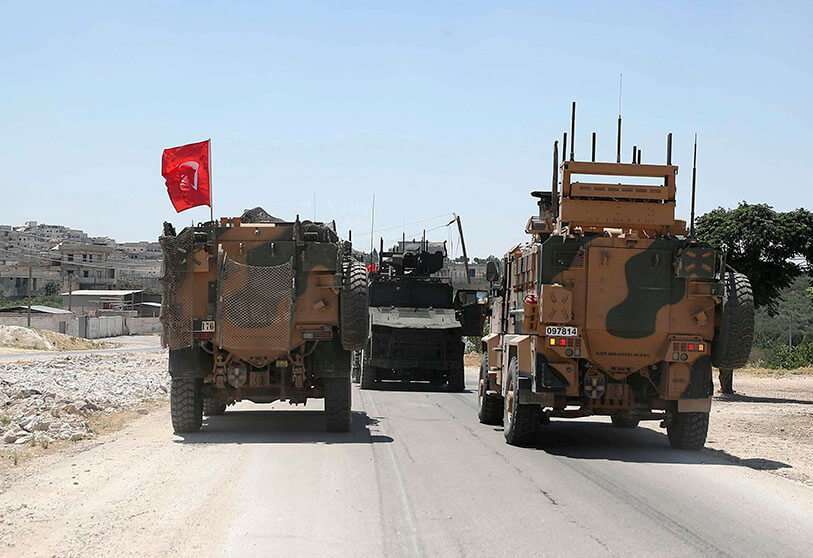
Do you think the international coalition can or should make a greater effort to get Syria out of this situation?
I can say that they can - and should - do something, not more, because they have done nothing to do more. Today, there are two forces occupying Syria and supporting the regime there: Iran and Russia. Iran intervened directly in 2013. Russia intervened directly in 2015. They bombed civilians, they occupied cities and towns with the participation of sectarian paramilitary militias that the Iranians brought also from Iraq, Lebanon and Afghanistan. Russia and Iran are now the masters. They own the place and they are in competition. Russia cannot continue to invest in the reconstruction of a country that is in complete ruins. The Russians need the European Union to invest in the reconstruction of Syria.
The European Union now has the opportunity not only to pay, as it has always done, for humanitarian work without saying anything about it. Europe must pay. But only if it plays a political role. What should that role be? To support a political transition to democracy by respecting the Security Council resolutions, in particular Resolution 2054, which everyone has signed up to but which has never been implemented. Europe has a card to play and now it is reconstruction. Reconstruction as opposed to transition must be the conditionality this time. Unfortunately, however, there is no unified European foreign policy; there is France, Germany, Italy and Spain. There is Eastern Europe and Central Europe. Each country manages its foreign relations in a totally different way.
In Brussels, the European Union imposes sanctions on the Syrian regime. These sanctions are not being observed at all by members such as Bulgaria, Romania, the Czech Republic, Austria and Poland. Europe is a political dwarf in foreign affairs. Now it has to negotiate with those who control the regime. The regime is no longer sovereign. The regime no longer controls its own state. We have to negotiate with Russia and Iran. We have to negotiate with Iran about all its regional interference, as it sows chaos, terror and war throughout the region. In Lebanon, in Yemen, in the Gulf, in Syria, in Iraq. Iran must be encouraged to become a responsible state, not a rogue state, not a state that supports terrorism.
We must also negotiate with Russia. Recognising Russia's leading role on the international stage will help to satisfy Moscow's pride. Russia is currently a destabilising element in the region and is actively involved in the massive repression of the population in Syria. Russian bombing with a strategy inspired by World War II tapi-bombing has killed tens of thousands of Syrian civilians. This negotiation will not prevent international justice from doing its job in the long term. In the short term, it is better to negotiate with Syria's occupiers to find a peaceful solution.
On the other hand, we have Turkey, which occupies part of northern Syria. Turkey also needs to be guaranteed its security in relation to the Kurdish PKK forces. At the same time, it must abandon repression and occupation of the Kurdish areas inside Syria. The Kurdish issue in Turkey is very complex. Threats to national security have completely overtaken Turkish political management. This is quite plausible. Within Syria, Syrian Kurds must join the multi-ethnic nation and abandon this alliance with the Turkish PKK. And their legitimate demands for autonomy, for recognition of their culture, their language, their political aspirations, must be recognised by the entire Syrian population without interference from regional forces.
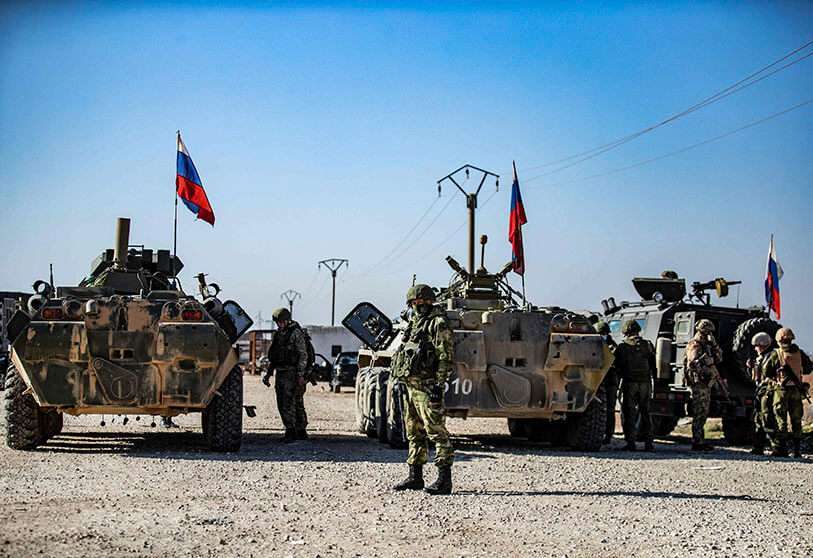
Turkey is one of the countries causing the greatest instability in the region. How much of the blame for the Syrian conflict can be attributed to Turkey?
It had to play devil's advocate. Turkey intervened in Syria at the beginning of the peaceful revolution when the foreign minister paid diplomatic visits to Bashar al-Assad to convince him to reform his policies in exchange for unconditional aid from the Turkish government. Relations between the Syrian regime and the Erdogan-led government before and even when Erdogan became president were very good.
The Syrian president spent holidays with the Erdogan family so that the relationship between the two governments developed a great deal. Now, with the outbreak of the popular uprising in Syria and the failure of Turkey's attempt to mediate at first, leading it to choose to support the opposition, it should also be noted that there are some 4 million Syrian refugees in Turkey. This is not a small number. Turkey is the only neighbouring country that has welcomed Syrian refugees with dignity. Not like in Lebanon and Jordan, where they are crammed into closed camps.
Turkey has tried in this "open space" to play its role, to preserve its interests, to protect its pawns, to manipulate some rebel groups to fight against the Kurdish forces and not against the current regime. This has muddied the waters somewhat. Finally, there was the direct interference of its military.
The military presence of Turkish forces has helped protect four million refugees in the northwest from daily shelling. On the other hand, it has displaced Kurds from certain localities on the pretext that they support PKK terrorism. This is a very complex issue. Unfortunately, there is no black and white. There are no clear-cut situations to analyse logically. The countries which have destabilised Syria the most, which have caused the most deaths in Syria, are Russia and Iran. There is no comparison with Turkey.
On Syrian soil we can observe the presence of several foreign forces: Israel, Russia, Iran, the United States and Turkey. Alongside these regular forces, there are Russian, Lebanese and Iraqi paramilitary militias, as well as local armed gangs linked to the regime, etc.
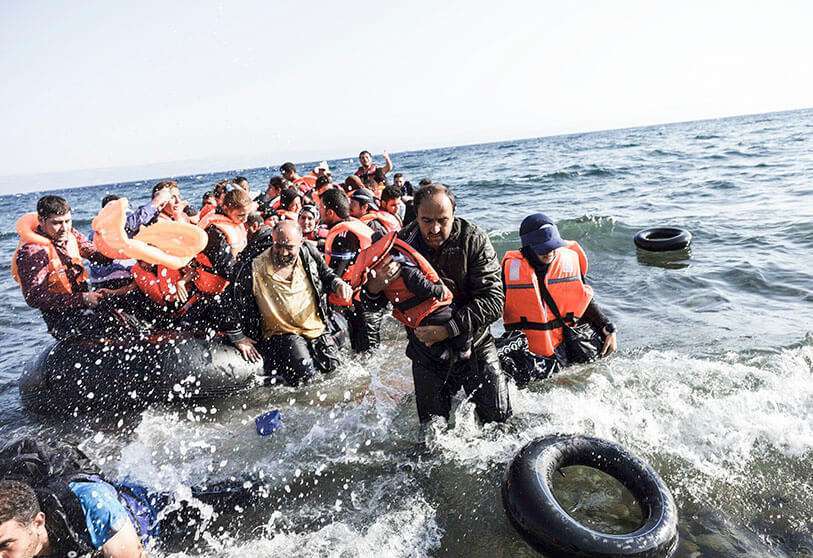
It is difficult to predict when the war will end. But, do you think that the end of the war is near or that the conflict will last for a long time?
I am torn between the personal desire to see the end of this conflict as soon as possible, on the one hand, and the objective and rational analysis that does not see an end to this conflict. Therefore, the situation will remain frozen. As long as there is no deflagration of terrorist acts provoked by desperation, by famine, by the radicalisation that is gaining more and more ground, and as long as there is no danger of massive migratory flows towards Europe, it will not move.
People become radicalised when they have no hope, when the door is closed to them. There are 5 million Syrian children who have been born during the last 10 years of war. They have known no school and no normal life. You have a traumatised population. People who are living in tents for 10 years. This is the biggest humanitarian catastrophe in centuries. This all leads to radicalisation and ultimately to reprehensible acts of terrorism, which are eventually unavoidable. I wonder what that might be.

